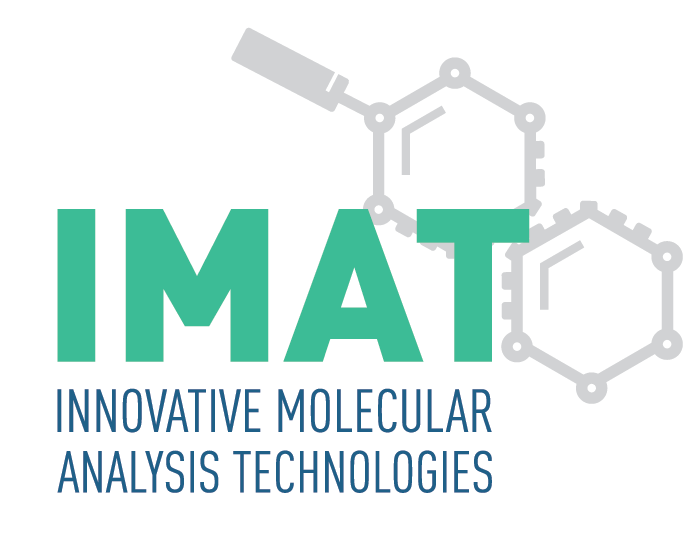Types of IMAT Awards
Early-stage development of technologies: R61
IMAT uses the R61 grant mechanism to support early-stage, proof-of-concept studies. This mechanism has no requirement for preliminary data (though it is allowed if available) and is suitable for projects for which the technical feasibility of the proposed technology or method has not been established. These projects were supported using the R21 mechanism until 2023, when the IMAT R61 was introduced. For more details about the R61 grant mechanism, you may watch a recording of a webinar describing the R61 and answering questions about the scientific scope and application details of these funding opportunities.
Advanced development of technologies: R33
IMAT uses the R33 grant mechanism to support advanced development and validation of emerging technologies. This mechanism is suitable for technologies that have preliminary data to demonstrate that major feasibility gaps have been overcome, but still require further development and rigorous validation for broad adoption by the research community.
Adoption of emerging technologies by research community: Competitive Revisions
Through the competitive revision mechanism, currently funded NCI grantees with an R01, U01, or P50 award can apply for additional funds to expand upon the original research question(s) or otherwise accelerate progress for the parent study by incorporating a new technical approach developed through support from the IMAT program. The PI of the R01, U01, or P50 who is receiving the revision award cannot be the IMAT-supported investigator; these projects are meant to provide independent validation of the emerging technologies and spur collaborations between tool developers and end users.
More details are available on the IMAT Funding Opportunities page.
History of the IMAT Program
Technical innovation can improve and transform our ability to understand, prevent, diagnose, and treat cancer. NCI established the IMAT program in 1998 to focus support on the development of innovative technologies that meet the specific needs of cancer researchers and clinicians and offer the potential to accelerate progress in the fight against cancer. The program promotes interdisciplinary research that brings diverse expertise to tackle persistent challenges in cancer research that are most in need of technical innovation.
By taking risks on early-stage technology development projects that have the potential to transform cancer research, IMAT has contributed to the development of many of the most widely used technologies across the cancer research and clinical communities. MuDPIT, Rolling Circle Amplification, ROMA, Illumina bead platforms, and ICAT technologies were all supported by IMAT grants in the late 1990s. In the 2000s, IMAT supported development of activity-based protein profiling, PROTACS and numerous liquid biopsy, imaging mass spectrometry, single-cell analysis, and spatial -omic methods that are leading their fields today.
The advancement of molecular and cellular analysis technologies demands improvements to methods for maintaining or assessing the quality of biospecimen samples used in cancer research. In 2004 the IMAT program released additional funding opportunities calling for the development of innovative sample preparation methods to address this need. These funding opportunities have evolved to include new tools for acquiring, preserving, or handling cancer-relevant biospecimens.
To encourage the adoption of emerging technologies by the research community, the IMAT program began soliciting proposals for competitive revisions to ongoing NCI research projects in 2018. This component of the program incentivizes independent validation of IMAT-supported technologies by early adopters of new technologies.
As new challenges emerge for cancer researchers and clinicians, the need for a technology development pipeline encompassing inception and initiation through dissemination and commercialization endures. The IMAT program serves a unique role at NCI in the early stages of this pipeline. The program is regularly evaluated by panels of external experts and subsequently evolves to meet the needs of the research community. A summary of the findings from these evaluations can be found in CSSI’s Program Evaluation Reports page.
Every year since 1999, all researchers with an active IMAT project have gathered for the annual IMAT PI meeting to share progress on their developing technologies and form collaborations. Information about these PI meetings going back to the inaugural meeting in 1999 can be found on CSSI’s Past Events page.
IMAT Management Team
Director of IMAT Program
Dr. Kelly Crotty (kelly.crotty@nih.gov)
Program Team
Center for Strategic Scientific Initiatives
Dr. Tony Dickherber (dickherberaj@mail.nih.gov)
Division of Cancer Biology
Dr. Steven Becker (steven.becker@nih.gov)
Dr. Hannah Dueck (hannah.dueck@nih.gov)
Dr. Cindy Kyi (cindy.kyi@nih.gov)
Division of Cancer Treatment and Diagnosis
Diagnostic Biomarkers and Technology
Dr. Asif Rizwan (asif.rizwan@nih.gov)
Dr. Jung Byun (jung.byun@nih.gov)
Biorepositories and Biospecimen Research
Dr. Ping Guan (ping.guan@nih.gov)
Dr. Lokesh Agrawal (lokesh.agrawal@nih.gov)
Cancer Imaging Program
Dr. Yisong Wang (yisong.wang@nih.gov)
Division of Cancer Prevention
Dr. Vignesh Gunasekharan (vignesh.gunasekharan@nih.gov)
Dr. Nick Hodges (nick.hodges@nih.gov)
Division of Cancer Control and Population Sciences
Dr. Stefanie Nelson (stefanie.nelson@nih.gov)

